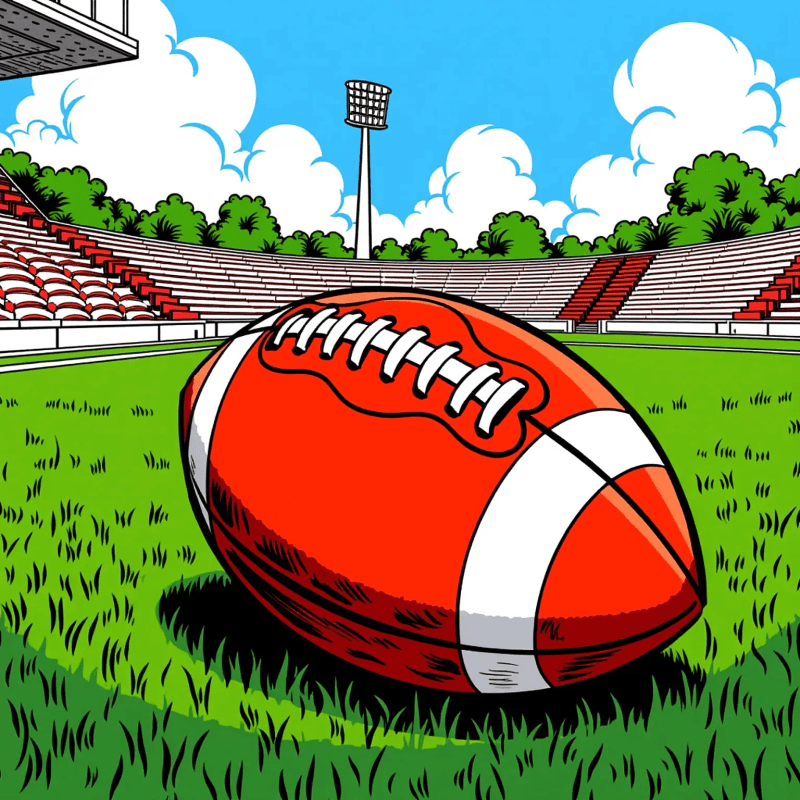Getting started with your training routine in competitive flag football is all about building the right habits. Whether you’re a beginner or looking to step up your game, the key is to focus on the basics first. Start with a mix of strength training, speed drills, and agility work. This combination will improve your overall performance on the field.
Here’s a simple plan to help you kick things off:
Don't forget about practice and teamwork. Set aside time to practice with your teammates. This not only helps improve your skills but also builds team chemistry, which is vital in competitive play. Try to focus on specific plays and strategies that you’ll use during games.
Lastly, keep track of your progress. Whether it’s a workout log or just jotting down notes, monitoring your improvements can help keep you motivated. Celebrate the small victories, and remember, consistent training is what will help you train like a pro!
Essential Skills for Flag Football Success
When it comes to flag football, having the right skills can really make a difference on the field. While speed and agility are important, there are some essential skills that every player should work on to ensure they're ready for game day.
First up is catching. Whether you’re a quarterback or a receiver, being able to catch the ball reliably is key. Practice your hand-eye coordination by tossing a ball with a friend or using a wall to bounce it back. The better your hands, the more plays you can help your team execute.
Next, let’s talk about route running. Knowing how to run crisp, precise routes can help you get open and create opportunities for your team. Work on different patterns—like slants, go routes, and curls—so you can keep defenders guessing. The more versatile you are, the more valuable you become on the field.
Don’t forget about flag pulling. It’s not just about avoiding being tagged; it's also about being the one doing the tagging! Practice your technique and make sure you can grab those flags quickly and efficiently. A solid flag pull can change the momentum of a game.
Lastly, good communication is vital. Always talk to your teammates—whether it’s calling out plays or giving encouragement. Building a strong rapport with your team can help everyone stay focused and on the same page during the game. Remember, flag football is a team sport, and that teamwork makes you all better players!
Drills to Boost Your Game Performance
When it comes to flag football, practicing specific drills can seriously boost your game performance. Whether you're looking to improve your speed, agility, or ball-handling skills, there are a few key drills that can help you take your game to the next level.
1. Sprinting Drills: Speed is crucial in flag football. Incorporate sprints into your practice by running short distances (10-20 yards) as fast as you can. Mix in some variations, like starting from a crouch or backpedaling before you sprint. This will mimic the quick bursts of speed you'll need during a game.
2. Route Running: Perfecting your routes can make a huge difference. Practice running different types of routes, like slants, outs, and posts. Pair up with a buddy to throw and catch during these drills so you can work on timing and communication.
3. Flag Pulling: Don’t forget the defensive side! Work on your flag-pulling technique with a drill buddy. Set up a small area, and have one person run while the other practices pulling the flag. The more practice you get, the quicker you'll be at snagging those flags during games.
These drills can be easily integrated into your practice sessions and don't require fancy equipment. Just grab a friend, find a good space, and get to work! Your performance on game day will thank you.
Tips for Staying Motivated and Focused
Staying motivated and focused in competitive flag football can sometimes feel like a challenge, especially when the season drags on. Here are some practical tips to keep that drive alive!
Set Clear Goals: It’s easier to stay motivated when you know what you’re working towards. Set both short-term and long-term goals. Maybe it’s improving your sprint time or mastering a new route. Write these down and track your progress. Seeing how far you’ve come can be a real boost!
Create a Routine: Developing a consistent training schedule can help build momentum. Try to stick to a specific time for practice, workouts, and even recovery. Routines can create a sense of normalcy and make it easier to push through on tough days.
Mix It Up: Doing the same drills every day can lead to boredom. Keep things fresh by trying new exercises or practice techniques. You might discover a new favorite drill or perfect a skill that you didn’t think you could. Plus, switching it up keeps your body challenged and engaged.
Find Your Support Squad: Surround yourself with teammates who lift you up. Training with friends can make workouts feel less like a chore and more like fun. Share your goals with them. They can help keep you accountable, plus it’s a great way to bond and build team chemistry!

